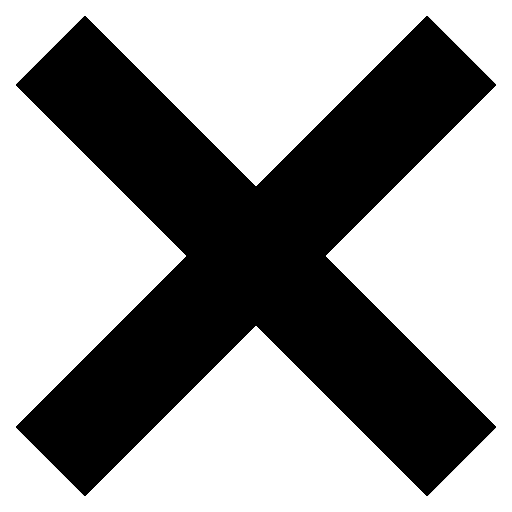Philosophy Courses
- Introduction to Philosophy – PHIL 115
Since the days of ancient Greece, Western philosophy has been dedicated to critically exploring a variety of perennial questions, problems, and issues with the noble hope of making sense of truth, reality, knowledge, ethics, and the human condition. This course will invite students to investigate core topics in philosophy, including self/personhood, the nature and significance of knowledge & truth, consciousness, free will, beauty, morality, the nature of law & government, the existence of God, death, and meaning & purpose.
Students will be invited to explore a wide range of historically significant ideas and theories that make up the foundation of the Western intellectual tradition. This course will challenge students to understand, analyze, appreciate, and explain the thoughts of ancient, modern, and contemporary thinkers, including Plato, Aristotle, Aquinas, Hobbes, Descartes, Locke, Hume, Kant, Hegel, Wittgenstein, Sartre, Kuhn, Searle, Nagel, Taylor, and Chalmers.
Instructor(s): D. Macomber, R. Thomas, K. Sieben, R. Wallace, B. Cocchiara
Required Course Textbook/Materials*:
- Philosophy: An Introduction to the Art of Wondering, James L. Christian, (Belmont, CA: Cengage/Wadsworth, 2016), 11th ed.
- Philosophy: A Text with Readings, Manuel Velasquez, (Boston: Cengage Learning, 2017), 13th ed.
*NOTE: Course textbook is specific to the instructor, so please refer to Webadvisor and/or instructor course syllabus addendum for textbook details.
Prerequisite(s): READ 092, READ 095, or satisfactory completion of the College’s basic skills requirement in reading.
- Comparative Religion – PHIL 225
Comparative Religion, is, as its name suggests, a course in which we will explore and compare the major religions of the world. This presupposes both an understanding of the concept of religion itself, as well as a willingness to look beyond one’s own religious beliefs and assumptions. In order to understand and appreciate the beliefs of others, it is often helpful to recognize one’s own beliefs and then set them aside temporarily so that one can fully examine someone else’s. Before making comparisons, therefore, we must begin by understanding each of the religions for what it is in itself. This is an essential part of the study of religion and cannot be over-emphasized.
Although most of our time will be spent examining the major religions of today, we will also explore the origins of religions and the beginnings of the various belief systems. To understand what is happening today, we will need to remember that each religion fits into a historical framework and that the past is the key to unlocking the meaning of present conditions.
Fifteen weeks is certainly not enough time to examine completely all the major religions of our world. During that time, all we can do is begin a search; perhaps we may also gain a fuller appreciation for those ways of thinking and patterns of belief that differ from our own.
In this course students will explore the ideas, assumptions, and values of the religions of the world, viewing them comparatively in search for the common truths and principles. Among the religions to be studied are the Eastern religions of Hinduism, Taoism, Confucianism and Buddhism, and the Western religions of Zoroastrianism, Judaism, Christianity, Islam & Bahai.
Instructor(s): B. Cocchiara
Required Textbook/Materials:
- The World’s Religions, Huston Smith (New York: HarperCollins, 1991).
Prerequisite(s): READ 092, READ 095, or satisfactory completion of the College’s basic skills requirement in reading.
- Logic – PHIL 226
Clear thinking is important for every civilization, but perhaps it is most important for our own, where each of us is continually being called upon to exercise his/her freedom to make choices. The information for these choices is readily available for those who seek it. It comes from books, magazines, newspapers, radio and television, the internet, conversations, meetings, debates, and many other sources, which compete for our attention in order to influence our attitudes and decisions.
But how much of what we read and hear ought we believe? And if we don’t know what to believe, how can our free choices be intelligent choices? Must we live in constant skepticism? Or are there ways to sort out correct thinking from deceptive thinking? Logic is the science of correct thinking. It studies the methods for making accurate inferences and for forming sound arguments, and it helps us identify misleading and fallacious arguments. In short, it enables us to deal more critically with the world around us.
Students will learn to develop methods of correct reasoning and ways of avoiding formal and informal fallacies. Emphasis will be placed on the analysis of words, statements and arguments using traditional logic. Upon successful completion of this course, as demonstrated through assignments, quizzes, and/or examinations, students will be able to do:
- recognize formal and informal fallacies in language samples
- differentiate inductive and deductive arguments
- identify and produce good inductive and deductive arguments using the principles of logic
- evaluate arguments from public discourse using the principles and methods of inductive and deductive logic
- translate ordinary language statements into symbolic form and determine their truth values.
- construct truth tables of compound propositions.
- employ truth tables to determine whether statements are tautological, self-contradictory, or contingent.
- use truth tables to determine whether pairs of statements are logically equivalent, contradictory, consistent or inconsistent.
- translate arguments into symbolic form, and their determine validity by using truth tables.
- use indirect truth tables to determine the validity of arguments.
Instructor(s) : D. Macomber
Required Course Textbook/Materials:
- A Concise Introduction to Logic, Patrick Hurley (Mason, OH: Cengage Publishing, 2015).
Prerequisite(s): MATH 012, MATH 015, or passing score in computation on Basic Skills Test.
- Introduction to Ethics – PHIL 227
Students will become familiar with many approaches to deciding what is ethically ‘right’ and ‘wrong’ in human action/behavior. The course begins with a look at several ethical theories, each intended to provide a framework for moral decision-making. The second part of the course involves discussion of many controversial ethical issues, including: abortion, euthanasia, genetic engineering, sexual behavior & pornography, business & the marketplace, violence, punishment & the death penalty, democracy & citizenship, animal rights, famine relief, social & economic equality, environmental sustainability.
How should people live? How should they act? How should one treat his/her fellow member of the moral community? This is what an ethics course is all about. These are broad questions, and not every aspect of them can be studied by moral philosophers/ethicists. What they are chiefly concerned with is the ways in which people make decisions, why they act as they do, and what norms or guidelines ought to influence their choices. The study of ethics deals with human decision-making. To do this effectively, we cannot work in a vacuum. So we must first become aware of a variety of personal and social problems which call for reasoned and critically sound human lines of thought and decisions. Only in this context can we suggest what choices ought, or ought not, to be made.
During our term we will look at a number of personal and social issues and see the controversies that surround them, including What is right or wrong? What is good or evil? What is acceptable or unacceptable behavior? In some cases, we may each reach seemingly satisfying answers, and in many other cases, we will simply learn to evaluate the reasons on both sides of the inquiry. However, in the end, we will, in all cases, make every effort to clarify our moral consciousness and make up our own minds by employing nuanced and critically sound reasoning. In short, we are striving to become moral philosophers/ethicists. All of us have made moral choices in the past, and to that extent we have already been ethicists, so to speak. However, in this course we are challenging ourselves to learn to make those decisions in a more logically consistent and analytically rigorous manner.
Instructor(s): D. Macomber, R. Thomas, K. Sieben, B. Cocchiara
Required Course Textbook/Materials:
- Ethics: Theory and Contemporary Issues, Barbara MacKinnon & Andrew Fiala (Belmont, CA: Cengage/Wadsworth Publishing Company, 2001), 9th ed.
Prerequisite(s): READ 092, READ 095, or satisfactory completion of the College’s basic skills requirement in reading.
- Social & Political Philosophy – PHIL 228
This course aims to offer students a broad survey of the central questions, issues, and problems explored in social and political philosophy. This course will introduce students to the philosophical foundations of liberty, justice, law, and democracy. Students will be challenged to examine a variety of historically important ideas and theories concerning the nature and significance of the individual, the community, the state, liberty, rights, equality, and social & economic justice.
The goal of this course is to invite students to critically explore a range of historically significant political and social philosophical questions, including: What is liberty? What are rights? What is justice? What is law? Are there limits to the sovereignty of the state over the liberty of the individual? What is the relation between the individual and the community? Is there a connection morality, law, and democracy? Fundamentally, this course strives to challenge students to think critically about a variety of ethical, social, and political theoretical concepts and ideas that underpin the Western democratic tradition.
By developing an in-depth understanding of social and political theory, students will foster a clearer and more nuanced understanding and appreciation of various contemporary questions, issues, and problems that concern the foundational ethical question asked by social and political philosophers: How should human persons live with one another?
Students will be invited to critically explore the above questions, issues, and problems by examining the social and political thought of a wide range of classic and contemporary thinkers, including Plato, Aristotle, Aquinas, Hobbes, Locke, Kant, Mill, Hegel, Marx, King, Berlin, Rawls, Nozick, and Taylor.
Given the interdisciplinary nature of social and political philosophy, this course will prove to be of intellectual and academic interest to a variety of students across campus. What is more, this course will provide an essential scholarly foundation for students studying Sociology, Political Science, Economics/Business, Criminal Justice, Legal Studies, History, Women’s & Gender Studies, Social/Human Services, and Philosophy.
Instructor(s): R. Thomas
Required Course Textbook/Materials*:
- An Introduction to Political Philosophy, Jonathan Wolff (New York: Oxford University Press, 2016), 3rd edition.
- Political Thought, Michael Rosen & Jonathan Wolff, ed. (Oxford: Oxford University Press, 2012).
*NOTE: Both textbooks are mandatory.
Prerequisite(s): READ 092, READ 095, or satisfactory completion of the College’s basic skills requirement in reading.
 Bookstore
Bookstore  Self Service
Self Service  Video Library
Video Library 
